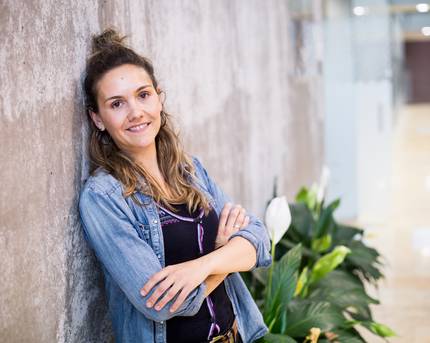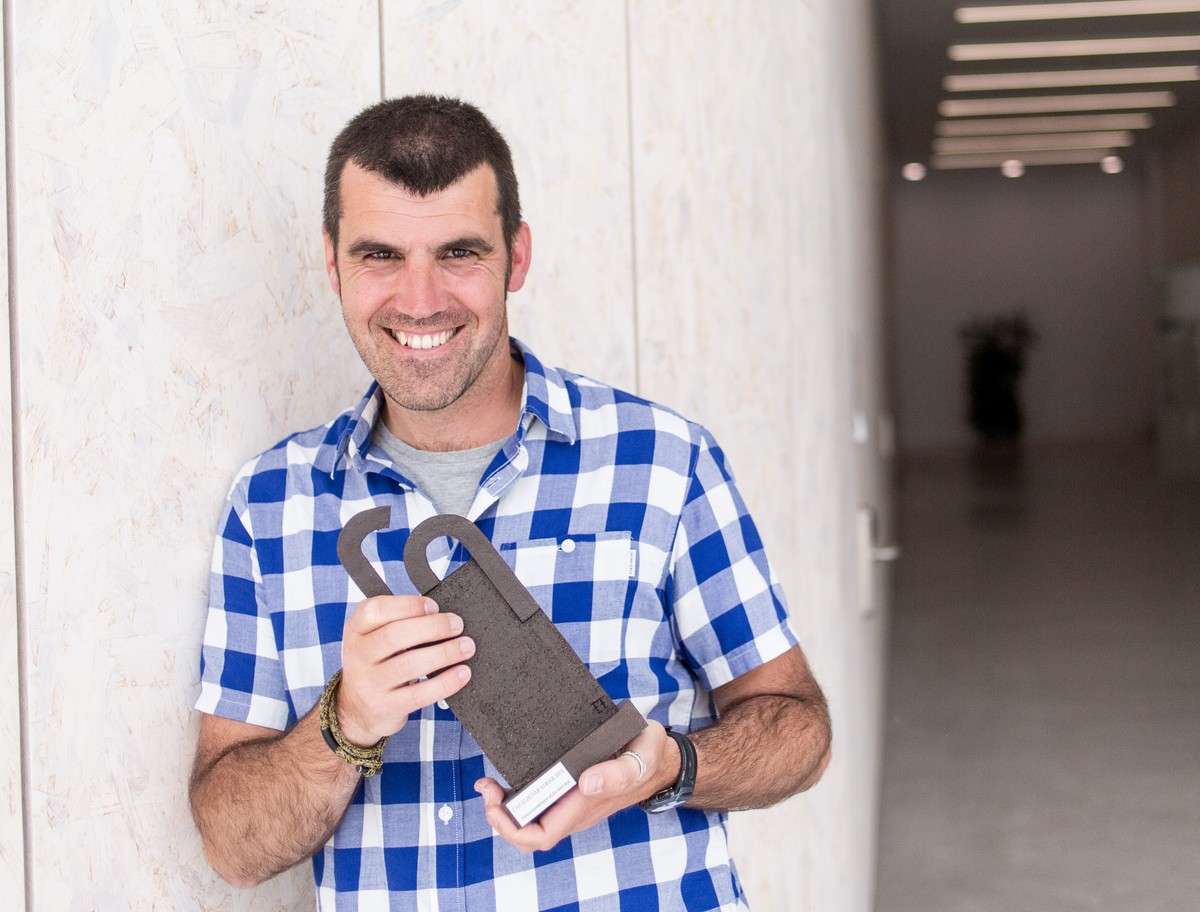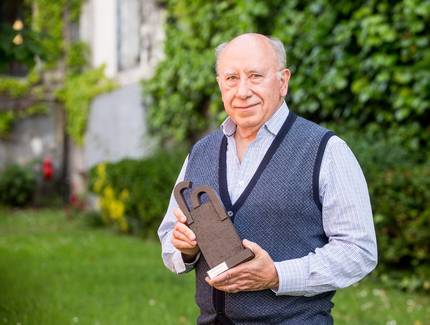2019 CAF-Elhuyar Awards, chronicle of a long-distance train
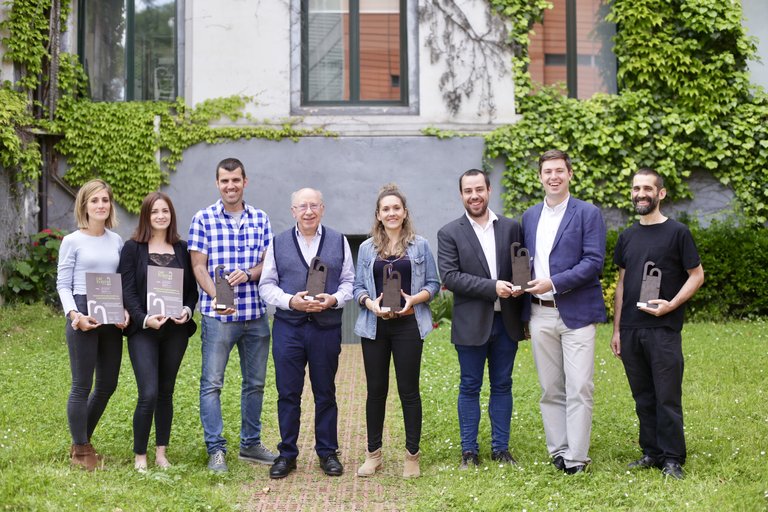
The CAF-Elhuyar Awards met yesterday 25 years and held a special event at CAF headquarters. The awards were distributed among the smiles and algae taken to the public, as testimony to the good health of scientific dissemination.
This year's winners were:
“Searching for the spheres of Dyson”, by Iñigo González de Arrieta Martínez and Iker González Cubiela. Award for the general informative article.
“Cells are online”, by Maider Beitia San Vicente and Itziar Urizar Arenaza. Special mention.
“To produce milk, do you use local or external proteins?”, by Izaro Zubiria Ibarguren. Special Neiker Award for the best work in the primary sector.
“Birds, Bees, Bugs… Little Apple Keepers” by Iñaki Sanz-Azkue, published in Argia magazine. Scientific journalism award.
Fossil Plastics, by Martin Etxauri Sainz de Murieta. Creation scholarship.
Jesus Mari Txurruka Argarate, UPV professor. Elhuyar Award of Merits.
Looking for Dyson's Spheres
The prize of the general informative article was for the Biscayan physicists Iñigo González de Arrieta Martínez and Iker González Cubiella, with the work “In search of the spheres of Dyson”. Its main objective, from the beginning, has been to “have fun”. And it is noted, the article does not stop dancing on the border between science and fantasy.
“Are we alone in the universe?” is the starting point of the article. “We have tried different ways to find other civilizations by sending radio waves and other messages. At the moment they have not responded,” the authors say. To find these civilizations, they propose to look for Dyson spheres: “Dyson’s sphere is a new technology that at the moment does not exist and would be used to cover the Sun or a star and harness all the energy of that star. Taking advantage of this energy, a civilization would be able to traverse its galaxy. So if we found a Dyson sphere in the Universe, it would necessarily mean that there is a more developed civilization than we do.”
The jury has recognized a great value to the work because “it shows that science, besides the existing world, also serves to know what can exist”.
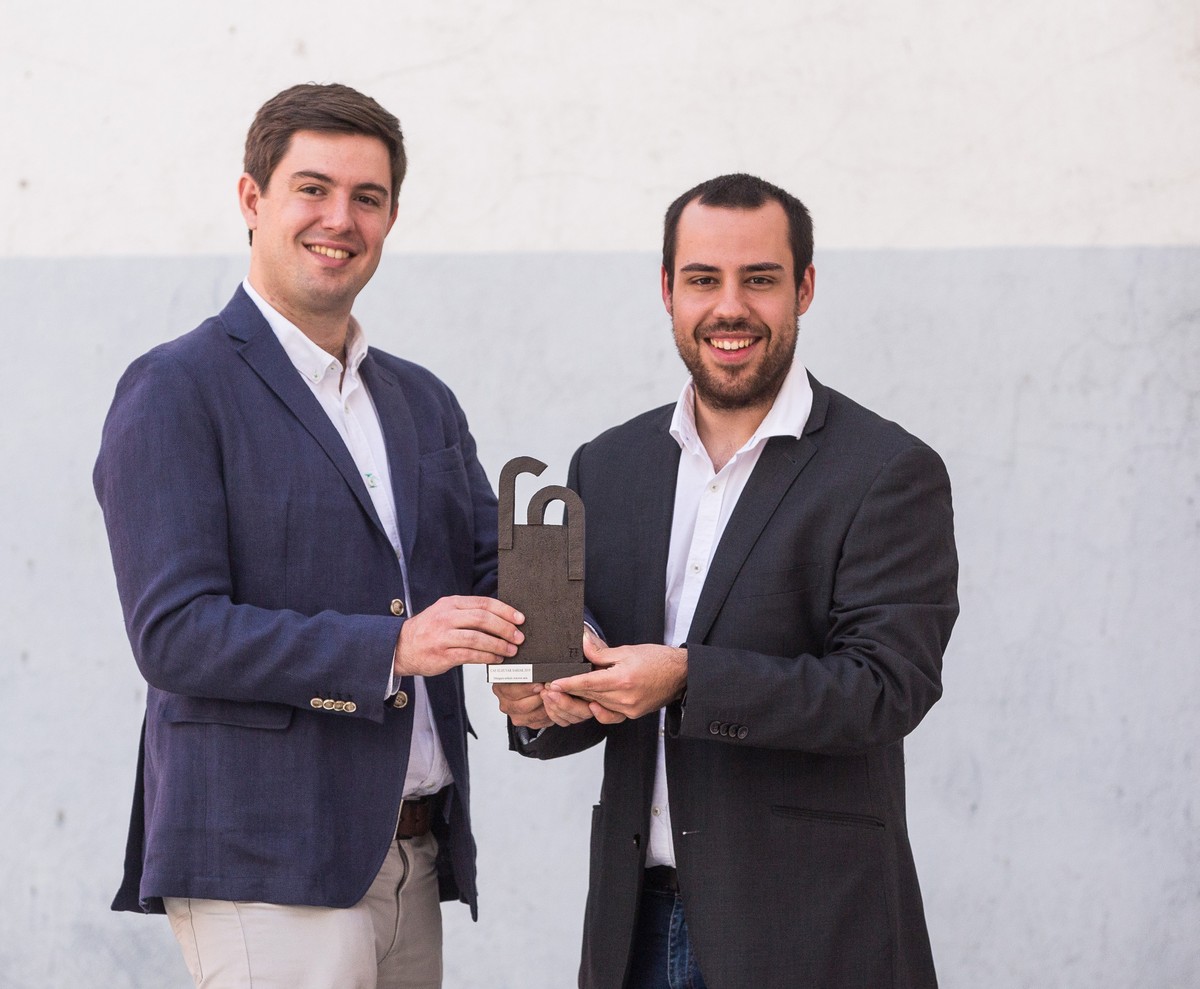
Cells are online
Given the strong competition in the category of general article, the jury decided to give a special mention to the other article that has come to the head: “Cells are online”, by Maider Beitia San Vicente and Itziar Urizar Arenaza. Both are researchers from the Faculty of Medicine and Nursing at UPV.
In the opinion of the jury, the article makes a very interesting game: using social networks like facebook, instagram, etc. as a metaphor, they explain how cell communications are. And this game serves as a claim to attract the reader. “With this simile we think that it would be easier to understand how communication between cells is,” the authors said.
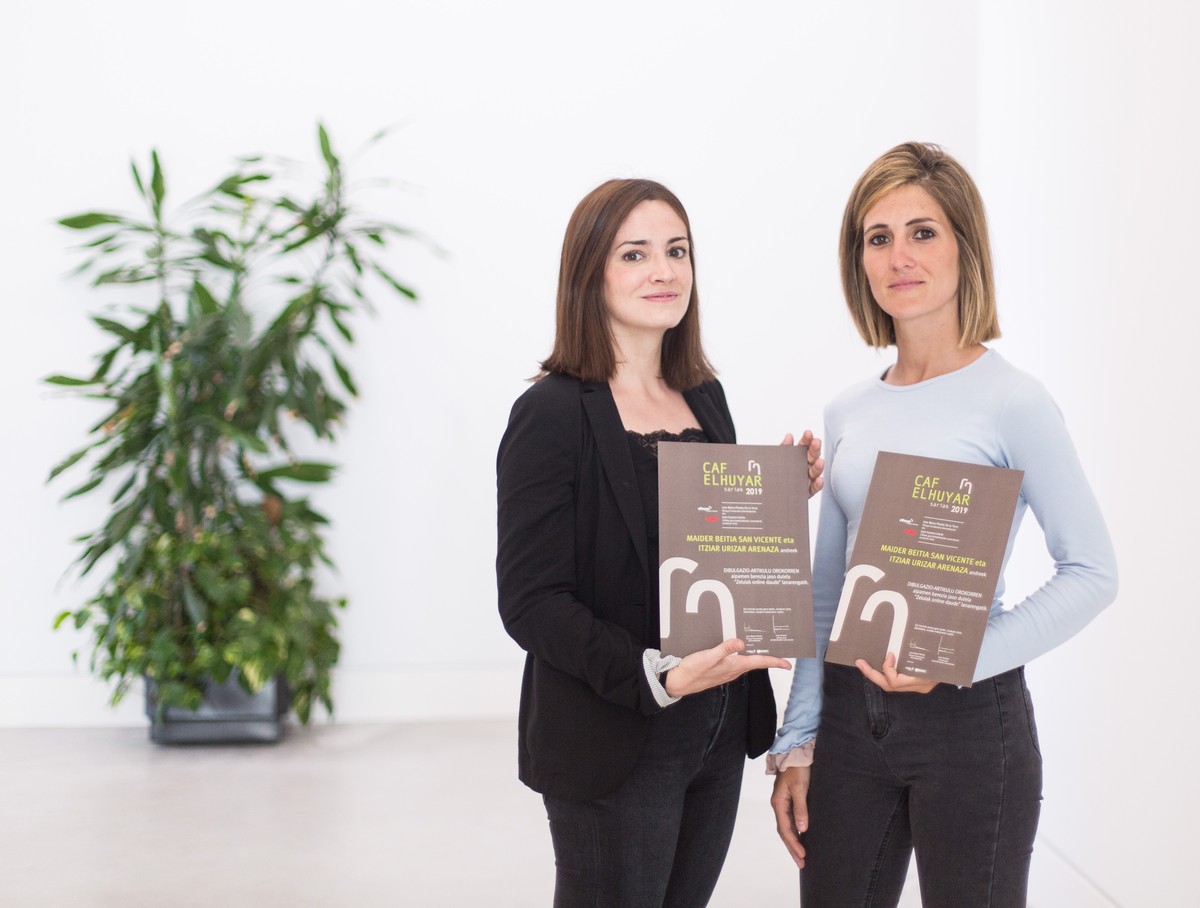
Milk production with local or external proteins
The Special Neiker Award for the best work in the primary sector was for Izaro Zubiria Ibarguren, with the article entitled “Using local or external proteins to produce milk?” According to the jury, the work responds to a real problem of livestock.
The prize went to baserritarras women: “They do a tremendous job, without holidays, without work agreements… Thanks to them our field and our cultural heritage are being kept alive.”
Prize for best thesis based work
The event had a surprise. In fact, the jury has decided to declare the prize for the best work based on the thesis as very few works have been received and did not meet the minimum criteria. In any case, they stressed the importance of this category and encouraged all those who are completing their doctoral thesis to submit their article next year.
Birds, Bees, Bugs… Small Apple Keepers
The prize of journalism has been for Iñaki Sanz-Azkue, with the work “Birds, bees, bugs… The little guards of the apple trees”, published in the magazine Argia. Sanz-Azkue, professor and member of the Aranzadi Society, has recognized that the award has given him “strength to continue writing”, “because many times we do not know if someone will read our articles”.
The work addresses the issue of biodiversity in a simple and attractive way, showing in detail and with great care the biodiversity that is concentrated around the apple trees. The jury has valued the value of what we have next to home. “The more diverse the fauna in the apple tree, the more likely it will be to have a better harvest, since the pests will decrease and pollination will increase,” the author said. He took the opportunity to thank the light for the confidence shown and congratulated on the 100th anniversary this year.
Fossil Plastics
The scholarship of creation in scientific society aims to promote projects that serve as a bridge between science and society. This year, Navarrese artist Martin Etxauri Sainz de Murieta won the Fossil Plastics Work.
The jury has stated that it has a very interesting approach: it responds to a concern today, and also incorporates the personal part with great personality. The aim of the artist is to scan in image dimensions and print on 3D printers the trunk surfaces of endangered trees in Euskal Herria. “I wanted to remember what is happening with plastic globally. They are already the symbol of the Anthropocene, where plastics are integrated into sediments. So I take trees and print in plastic. I want to place the public in the face of this violence, where trees are also made of plastic.I implicitly propose two questions: the fossil plastics, in which plastic occupies the place of stone when producing plastic fossils. And on the other hand, I wanted to bring a possible situation in which we have already completely finished the trees, in which we had to create plastics to remember them.”
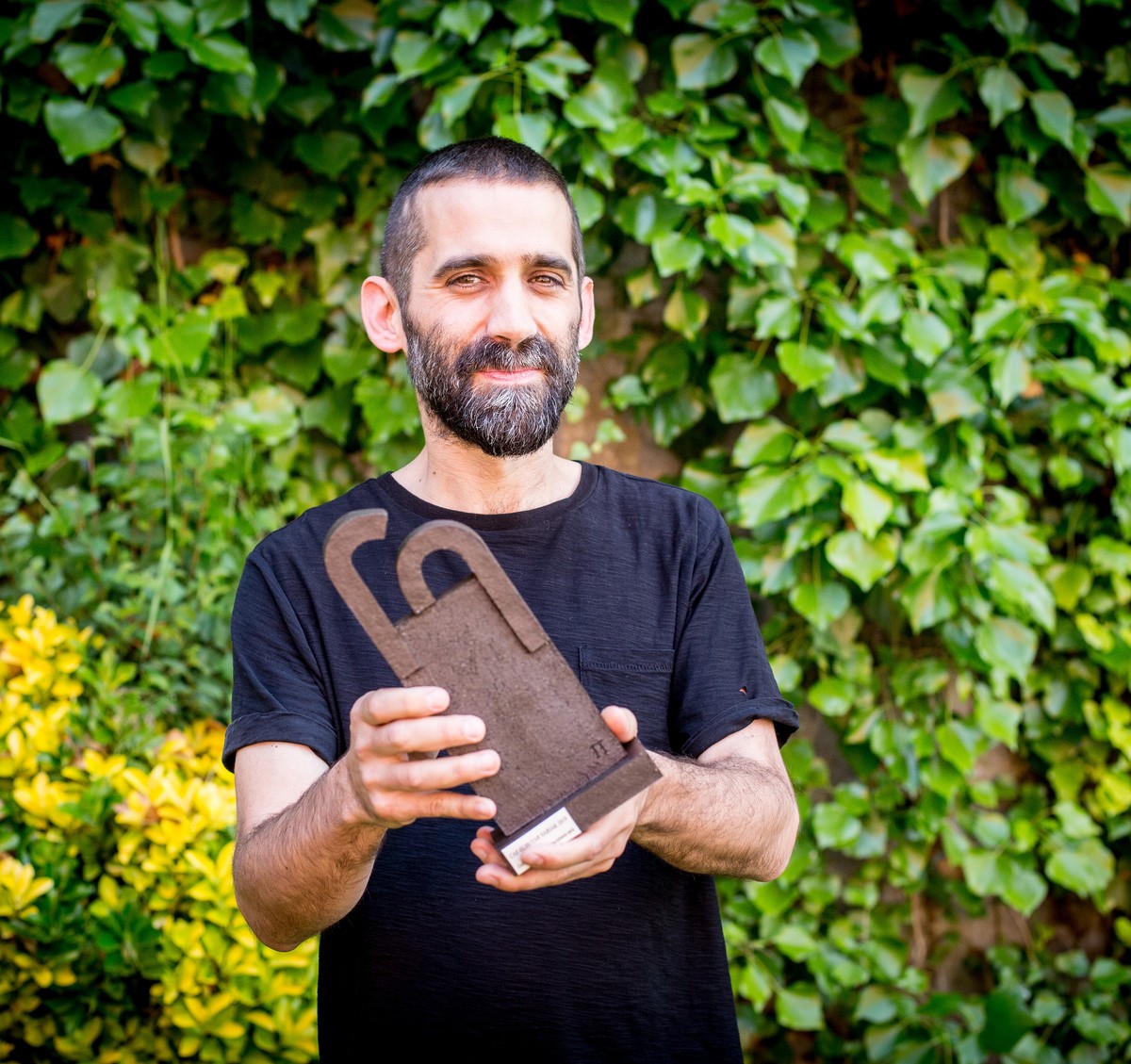
The event also presented the scholarship project last year by the architects Ander Gortazar Balerdi and Jacek Markusiewicz, already completed: Bastartak!. “The historical, political and social context greatly conditions the perception and valuation of architecture by society”, explain the authors. “In this project we wanted to value the stigmatized architecture to be able to contemplate with other eyes these buildings as cursed as the bastards”. Thus, with the money raised in last year's scholarship, the bastard buildings of the Bay of Pasaia have created an application to know interactively the mobile and tablets with augmented reality.
Related information
Finally, the Merito de Elhuyar was delivered. Jesús Mari Txurruka Argarate was received by the professor of the UPV-EHU for his work of normalization of Basque and socialization of science. José Mª Pitarke de La Torre, president of the Elhuyar Foundation and general director of CIC nanoGUNE, recalled the merits of Txurruka: “In 1977, when Jesus Mari was a student at the Faculty of Sciences in Leioa, there was no possibility of receiving classes in Basque, he began teaching biology seminars to students in Basque outside official hours. Two years later, these classes became officers, starting from the Basque line of the Faculty of Sciences.”
Jesus Mari just retired and, surrounded by family, he also looked back and made an audience vibrate with the anecdotes of that time, from revelry to laughter. May you also take advantage of the retirement period, Jesus Mari.
Buletina
Bidali zure helbide elektronikoa eta jaso asteroko buletina zure sarrera-ontzian




